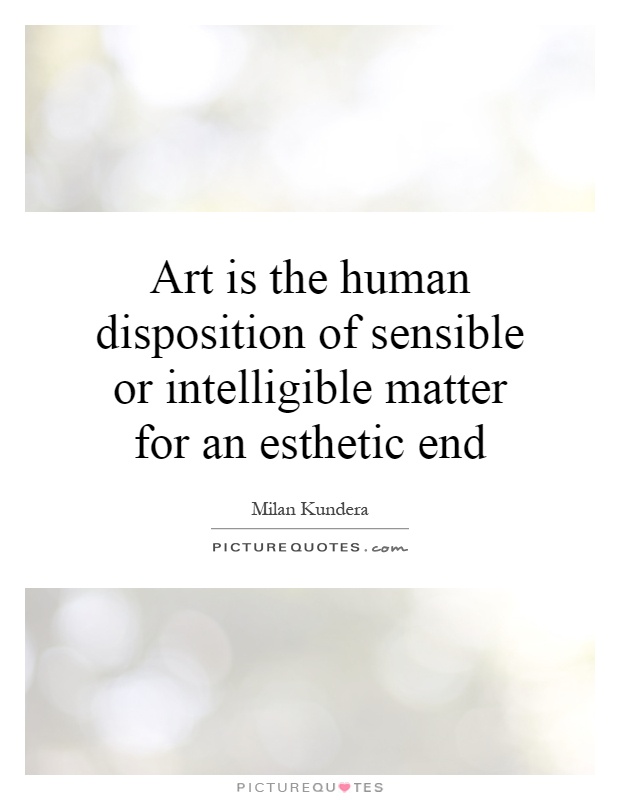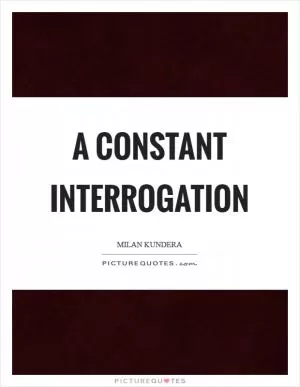Art is the human disposition of sensible or intelligible matter for an esthetic end

Art is the human disposition of sensible or intelligible matter for an esthetic end
Milan Kundera, the renowned Czech-French writer, is known for his profound insights into the human condition and the complexities of relationships. In his works, Kundera often explores the role of art in shaping our understanding of the world and ourselves. His belief that "art is the human disposition of sensible or intelligible matter for an esthetic end" reflects his deep appreciation for the transformative power of art.Kundera's definition of art as the human disposition of sensible or intelligible matter for an aesthetic end suggests that art is not merely a form of expression, but a way of engaging with the world and making sense of our experiences. Through art, we are able to transcend the limitations of language and logic, and tap into the deeper truths that lie beyond the surface of reality.
For Kundera, art is a means of exploring the complexities of human emotions and relationships. In his novel "The Unbearable Lightness of Being," Kundera delves into the lives of his characters with a keen eye for detail and nuance. Through his artful prose, he invites readers to contemplate the nature of love, desire, and the search for meaning in a world that often seems chaotic and unpredictable.
Kundera's definition of art also highlights the importance of aesthetics in shaping our understanding of the world. By arranging sensible or intelligible matter in a way that is aesthetically pleasing, artists are able to evoke powerful emotions and provoke thought in their audience. Whether through painting, music, literature, or film, art has the ability to move us, inspire us, and challenge our preconceived notions about the world.












 Friendship Quotes
Friendship Quotes Love Quotes
Love Quotes Life Quotes
Life Quotes Funny Quotes
Funny Quotes Motivational Quotes
Motivational Quotes Inspirational Quotes
Inspirational Quotes